11 Famous German Knights Who Shaped Medieval History
The Middle Ages were a time of war, conquest and chivalry, and few were more at home in this environment than the German knights who emerged from that period. From knights who became battlefield commanders to those who went on Crusades, these men shaped the course of the Holy Roman Empire and left a lasting legacy on European history. Whether leading armies in the name of the emperor, fighting for Christianity in the Crusades, or founding powerful knightly orders, these warriors helped define what it meant to be a knight in medieval Europe.
Many of these German knights have become the stuff of legends. The epic poems about the deeds of these men, such as the idealized Ulrich von Liechtenstein, or the formidable Hermann von Salza, the leader of the Teutonic Order, are still the subject of intense study and admiration. Their achievements in warfare, diplomacy and statecraft continue to fascinate and inspire.

Ulrich von Hutten: The Rebel Knight of the Reformation (1488–1523)
Ulrich von Hutten was a prominent German knight and writer, as well as an ardent intellectual and a satirist and critic of the Catholic Church. Born into a Franconian family of lower nobility in 1488, he was groomed for the church but found it less fulfilling than secular studies and literature. Combining literary skill and political activism, Hutten made his way into the secular life and court politics, where he became embroiled in religious controversy.
His publications, fiery poetry, and critiques of the Catholic Church clerical practices and abuses made him one of the champions of the Reformation, particularly in its first, more radical years. He was also an outspoken champion of the German nationalism, a cause which Hutten pursued even after his death.
Hutten was fluent in Latin and a skillful satirist and pamphleteer, which earned him a place in the pantheon of German renaissance. In Vadiscus, a famous pamphlet, he laid bare the political corruption and venality of the papacy and its agents. A close friend of humanist Erasmus of Rotterdam, he soon lost his favor by defending Martin Luther too vigorously and not curbing his attacks on the Church. Hutten’s literary talents and combative spirit marked him out as a leader in the intellectual struggle of the day.

In his capacity as a knight, Hutten also partook of the political and military conflict of the age. In 1522, he openly joined the forces of Franz von Sickingen, an imperial knight in league with the rebellious Rhineland cities. Von Sickingen gathered under his banner a number of knights and mercenaries, starting the Knights’ Revolt against the Holy Roman Empire. The movement was finally defeated by the concerted might of the Holy Roman Empire, and Hutten was forced to flee, excommunicated and proscribed. After a long, dreary flight he reached Switzerland, where he was hosted by the reformer Huldrych Zwingli, also a German by birth. Hutten was near death when he took shelter there, and died in 1523, much shunned by those who once courted his friendship and rhetorical skills.
Ulrich von Hutten is a significant figure both as an example of a chivalric revolt, a knight taking up the cause of the commoners and the ideals of the Renaissance and as a German patriot who laid some of the groundwork for German nationalism. The embodiment of the new spirit of the age, he was a fearless warrior and writer, ready to decry injustice and abuses with tongue and sword. He lost the battle, but the ideas he stood for would help transform Germany and the world.

Götz von Berlichingen: The Iron-Handed German Knight (1480–1562)
Götz von Berlichingen was a notable German knight of the late Middle Ages, known for his mercenary career and rebellious nature. Born in 1480 into a minor noble family in the region of Württemberg, Götz was brought up in the tradition of the German knightly class. From an early age, he was trained in the arts of war and lived a life of constant conflict. He served as a mercenary soldier, fighting for different lords and factions across the Holy Roman Empire. However, it was not until 1504 that he gained his most famous reputation: the loss of his right hand in battle.
Refusing to be crippled by this injury, Götz had a prosthetic hand made of iron, which he used to fight alongside his men for many years to come. This earned him the mythical nickname “Götz of the Iron Hand”. The iron hand itself was a work of engineering for its time, with articulated fingers that could grip a sword or hold the reins of a horse. But it was not just a symbol of Götz’s resilience: with this prosthetic, he was able to remain an active combatant in the wars of the early 16th century.
Götz fought in the wars of the Swabian League and frequently switched sides in the conflicts of the time. He developed a reputation as a ruthless mercenary, unafraid to fight for his own interests. He became a feared and respected figure in the German lands and was known for his defiance of authority. His famous catchphrase, “Er kann mich im Arsche lecken” (“He can kiss my ass”), spoken in response to the nobles who sought to control him, only added to his mythos as a rebellious and irreverent knight.
In 1525, Götz found himself caught up in the German Peasants’ War, a series of revolts against the feudal system. He was initially reluctant but was eventually pressured into leading a group of peasants against the ruling nobility. However, he soon realized that the peasants’ forces were disorganized and undisciplined and stood little chance against the well-trained armies of the nobles. He abandoned the cause and returned to his mercenary lifestyle, but he was not so easily forgiven: he was arrested by the authorities and spent several years in prison.
Despite this, his reputation as a rebellious and honorable knight remained. In his later years, Götz wrote his memoirs, recounting his adventures, battles, and defiance of authority. His autobiography became a classic of German literature and would later inspire the play Götz von Berlichingen by Johann Wolfgang von Goethe, which romanticized his life and helped cement his place in popular history. Götz lived to the ripe old age of 82, an astonishingly long life for a knight of the period. He remains a symbol of resilience, independence, and the indomitable spirit of a true warrior.
Hermann von Salza: The Diplomatic Mastermind of the Teutonic Order (c. 1165–1239)

Hermann von Salza was one of the most powerful leaders of the Teutonic Order during the Middle Ages. He was born to a noble Thuringian family around the year 1165. Joining the Teutonic Knights, he quickly rose through the ranks of the order. It became apparent to his brethren that he was the natural leader of the group, and in 1209 he was elected as its Grand Master. Hermann was an aggressive leader who took the Order from a relatively insignificant military brotherhood and turned it into a leading political and military force in medieval Europe.
Hermann was a warrior and diplomat. He established strong connections with the Holy Roman Emperor Frederick II, acting as the emperor’s advisor and peacekeeper with the papacy. He gained enough influence with the pope that the Teutonic Order was allowed to operate largely on its own, without much interference from the papacy or the emperor. Hermann was even Frederick II’s main negotiator when the emperor’s planned crusade was being formed and put into action. The emperor’s plans were controversial because he had been excommunicated by the pope and Frederick’s plans to retake the Holy Land were met with skepticism. However, with Hermann’s negotiating skills, both the emperor and the pope reached an agreement that resulted in peace between the two parties.
Hermann’s most important and lasting legacy to the Teutonic Order was the conquest and expansion of the Order into Prussia. In the early 1200s the Order was asked by Duke Konrad of Masovia for assistance in pushing back against pagan Prussian raids into the duke’s lands. Hermann was able to work with Konrad and the Teutonic Knights to form an effective offensive into Prussia to conquer the pagans.
Over the next several years, the Order’s military might brought most of the region under their control and transformed it into a major force in the Baltic region. The Order’s actions resulted in the Christianization of the region and the brutal deaths of many of the Prussian people. These campaigns also created the Teutonic State which was formed by the Order and was a major force in Eastern Europe for centuries.
In spite of the Order’s military and political successes, Hermann continued to be held in high regard as a mediator between the Teutonic Order, the Holy Roman Emperor, and the papacy. He was able to expertly balance the needs of all three bodies and ensure that all three were in agreement on key points regarding the Order’s future. He died in 1239, and the Teutonic Order remains one of the largest orders in religious history, partially due to the strong foundation Hermann von Salza built during his leadership. He is remembered as one of the most important knights of the Middle Ages.
Konrad von Thüringen: The Warrior Grand Master of the Teutonic Order (c. 1206–1240)
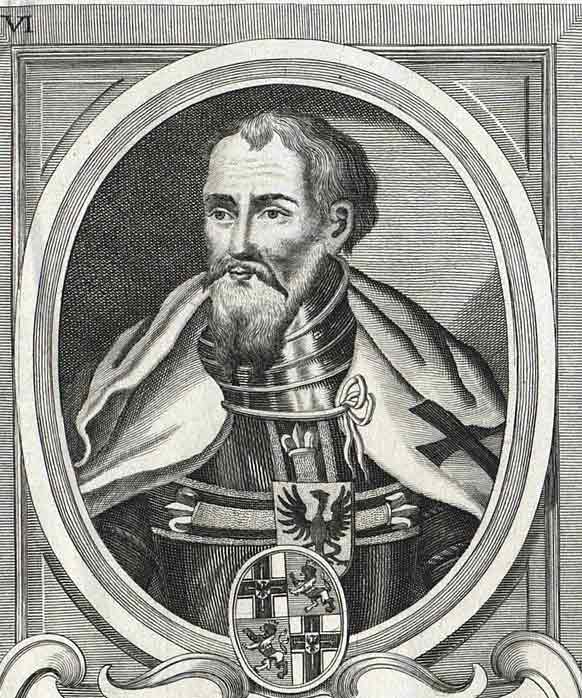
Konrad von Thüringen was an influential leader of the Teutonic Order during its early years of expansion and played a crucial role in the military campaigns in Prussia and Livonia. As the Grand Master of the Teutonic Order from 1239 to 1240, he significantly contributed to the Order’s efforts in conquering and Christianizing the Baltic region. Konrad’s early life was marked by the political intrigues of the Holy Roman Empire, as he was born into the noble Ludowingian dynasty around 1206. Before becoming a member of the Teutonic Order, he held the title of Landgrave of Thuringia and was deeply involved in the imperial politics of medieval Germany.
Konrad’s early years were defined by the power struggles within the Holy Roman Empire and the influence of his noble lineage. Despite his high standing and close ties to the Emperor, Konrad’s political career faced challenges due to familial disputes and a series of political misfortunes. These events led to his decision to renounce his noble titles and take the cross, joining the Teutonic Order. Konrad’s leadership of the Teutonic Order during its early expansionist phase was characterized by his military campaigns in the Baltic region.
Upon his election as Grand Master in 1239, Konrad focused on leading the Order’s military efforts against the pagan Prussians and Livonians. His campaigns in these territories were instrumental in establishing the Order’s presence and expanding its influence in the region. Konrad’s efforts in Prussia and Livonia laid the groundwork for the Teutonic Order’s later expansion and the establishment of the Teutonic State. His military strategies were effective in subduing the local populations, despite the harshness of the conquests.
Konrad von Thüringen’s role as Grand Master also had a significant impact on the relationship between the Teutonic Order and the Holy Roman Empire. His noble background and connections to the imperial court allowed him to maintain strong ties with the Emperor and the papacy, securing support for the Order’s military campaigns and Christianization efforts. This support was vital for the Order as it faced staunch resistance from the Prussian tribes, who resisted conversion to Christianity and the foreign rule imposed by the Teutonic Knights. Konrad’s leadership helped to solidify the Order’s control over the newly conquered lands and laid the administrative and military foundations for its governance.
Konrad von Thüringen’s time as Grand Master was cut short by his death in 1240, under circumstances that remain unclear, with some sources indicating he may have been killed while on campaign in Prussia. His leadership and contributions to the Teutonic Order’s expansion in the Baltic region left a lasting impact on the Order’s history. By leading its territorial expansion, Konrad von Thüringen played a significant role in the transformation of the Teutonic Order into a major military and political power in medieval Europe. His actions during his brief tenure as Grand Master were pivotal in shaping the Order’s legacy and establishing the Teutonic Knights as a dominant Christian military force in the Middle Ages.
Heinrich von Plauen: Defender of the Teutonic Order (c. 1370–1429)

Heinrich von Plauen was a German knight and leader of the Teutonic Order, who played a significant role in defending the Order’s territories and power after their major defeat at the Battle of Grunwald in 1410. Born around 1370, he joined the Teutonic Order as a young man and rose through the ranks. In the early 15th century, von Plauen became the commander of Schwetz (Świecie), a key fortress in Prussia. He gained a reputation for his military leadership and strategic expertise, becoming a key figure in the Order’s defense efforts during a period of increased external threats.
The Teutonic Order suffered a catastrophic defeat at the The Battle of Grunwald, also known as the Battle of Tannenberg, in 1410. The combined Polish and Lithuanian forces, led by King Władysław Jagiełło, decisively defeated the Teutonic Knights, resulting in a significant loss of life and the capture or death of many of the Order’s leaders. Heinrich von Plauen was not present at the battle, but he quickly took command and organized the defense of the Order’s capital, Marienburg (Malbork), against the advancing Polish-Lithuanian army. His prompt actions and leadership prevented the complete collapse of the Order’s rule in Prussia.
With a small force, von Plauen reinforced the defenses of Marienburg and successfully defended the castle against a two-month siege by the Polish-Lithuanian troops in 1410. Despite the relentless attacks and heavy bombardment, Marienburg’s defenses held, forcing the attackers to retreat. This successful defense allowed the Teutonic Order to negotiate a more favorable peace treaty. In recognition of his efforts, Heinrich von Plauen was elected as the Grand Master of the Teutonic Order in 1410, succeeding Michael Küchmeister.
As Grand Master, von Plauen took measures to stabilize the weakened Order, reorganize its military, and reassert its control over its territories. He negotiated the Treaty of Thorn in 1411, which ended the war but imposed heavy financial penalties on the Teutonic state. Von Plauen also implemented strict reforms and sought alliances with the German states to strengthen the Order’s position. However, his aggressive policies and conflicts with the internal leadership of the Order led to his deposition and imprisonment in 1413 by rival factions within the Order, effectively ending his rule as Grand Master.
This German knight is remembered for his defense of Marienburg, which allowed the Teutonic Order to survive and recover from one of its most devastating defeats. His leadership during this critical period helped delay the decline of Teutonic rule in Prussia and showcased the resilience of the Order’s military forces. Heinrich von Plauen remained a symbol of defiance and strategic acumen, even after his death in 1429.
Wolfram von Eschenbach: The Knightly Poet of the Middle Ages (c. 1160–1220)

Wolfram von Eschenbach was a medieval German knight and a poet born about 1160. He was a scion of the House of Eschenbach and a minor nobleman who served as a knight for different lords in the Holy Roman Empire. He said he was illiterate and uneducated but dictated most of his literary works to scribes. Wolfram von Eschenbach was considered by the contemporary minnesingers and poets to be one of the greatest poets. He rose to fame due to the popularity of his narrative poem Parzival.
Parzival is a retelling of the Arthurian Grail legend. In this version of the legend, Wolfram von Eschenbach makes the hero himself the focus of the tale. The knights’ adventures and quest for the holy grail were also his own personal journey to find himself and regain his honor. Parzival was a considerable success and influenced literature throughout the medieval period as well as the 19th century opera Parsifal by Richard Wagner.
Wolfram von Eschenbach is the author of several other works including Willehalm, a chivalric romance about the exploits of the medieval figure William of Orange. Another poem, Titurel, is a fragment but it too is an expansion of the Grail legend.
His works were set apart from the works of other medieval poets like Chrétien de Troyes. They were more complex, with much deeper character development, and were written in a distinctive style. He used much humor and irony in his works to question the traditional ideals of knighthood.
Wolfram von Eschenbach’s works were well-known during his time, and as such, it is more likely that he was involved in battles as a knight for the Holy Roman Empire. He would have been an eyewitness to the violence and warfare of medieval Europe. The fighting in his poems, though certainly stylized, and not lacking in dramatic embellishments, were authentic to the culture. His works, like those of most minnesingers, focused on war, honor, and chivalric duty. In many ways, Wolfram von Eschenbach was set apart as he placed more focus on wisdom and self-knowledge than the glory of war.
Wolfram von Eschenbach was, first and foremost, a poet of the Middle Ages, but he was also a German knight. His legacy would have lasting effects on not just literature but on chivalry and knighthood itself. His ability to capture the essence of the medieval knight and the reality of knighthood in his poems would be a major part of how he was remembered long after his death.

Dietrich von Bern: The Legendary Warrior-King of Germanic Lore (legendary, early medieval period)
Dietrich von Bern is one of the most enduring medieval knightly characters. This famous warrior’s tales of strength, heroism, and long exile are scattered across centuries of Germanic and European literature. Dietrich’s real-life prototype was Theoderic the Great, a 6th-century Ostrogothic king, but legends about Dietrich developed separately from historical accounts and forged a reputation as a semi-mythical knight of great strength and nobility. His exploits are described in Das Nibelungenlied, Dietrichs Flucht, and The Thidrekssaga , where Dietrich is depicted as a noble king in exile battling monsters and foreign kings to regain his kingdom.
Dietrich von Bern is primarily known for his battlefield exploits and heroism. He is usually portrayed as a peerless warrior, leading his retinue of knights to war against monstrous foes, evil kings, and otherworldly enemies. Dietrich faces down fire-breathing dragons and giants, battles legendary heroes such as the Thidrekssaga hero Hagen, and survives supernatural challenges with a mixture of combat skills and raw strength. His courage in war is a recurring theme in his legend and raises him from a historical king to a heroic knight, a mortal human who achieved superhuman strength.
Dietrich’s long exile is the most famous part of his story. In this tradition, the German king was forced into exile in foreign lands and robbed of his kingdom, but, like many exiled medieval kings, Dietrich battles his way back to power, justice, and retribution. This German knight rules the land of Bern (Verona in modern Italy), but his uncle, Ermanaric (Ermenrich), an evil and untrustworthy old man, seizes his kingdom.
Dietrich is forced to flee Bern with his family and fight his way back home, assisted by his loyal warriors, including his mentor and companion Hildebrand (in later tales Witege). This tale, which echoes the fate of many knights in exile in medieval literature, contributed to the popularity of Dietrich’s legend and illustrates knightly ideals such as loyalty, resilience, and the upholding of justice.
Dietrich is often portrayed as a reluctant warrior, fighting only for honor and survival and not for the sake of power or glory. This nuance in the character sets him apart from other legendary knights and makes him more than a simple muscular giant. In a way, the German warrior even regrets his role in the destruction of cities and innocent people, which is a rather unique form of introspection for a medieval hero.
Dietrich even enters a long-running feud with one of the most famous Germanic heroes of all time, the mighty and temperamental Siegfried (Sivardt in the sagas). Dietrich and Siegfried are frequently described as being of equal strength, but the two warriors have different fighting styles and dispositions.
Dietrich von Bern’s influence on chivalric literature and the knighthood tradition in the Germanic world is considerable, and his legend endures for the entire medieval period. Historians dispute the historicity of Dietrich and the scale of his connection to Theoderic the Great, but his mythical character remains one of the cornerstones of European medieval literature. Dietrich von Bern is a fascinating blend of a battlefield hero, an exiled king, and a mighty knight, and his tale is one of the most amazing warrior stories in European history.
Hartmann von Aue: The German Knight Who Brought Arthurian Romance to Germany (c. 1160–c. 1210)

Hartmann von Aue was a medieval German knight who served as a ministerial to a lord and was also a significant and influential Middle High German poet. During the mid to late 12th century, Hartmann von Aue helped to popularize Arthurian romances in the German language, adapting stories of chivalry, courtly love, and knightly heroism from the French and Latin languages.
In addition to being a poet and writer, Hartmann was also a seasoned warrior who took part in many battles during his life. Similar to most knights in the medieval period, Hartmann likely took part in a crusade to the Holy Land in the service of his feudal lord. His writings reflect first-hand experience in warfare and crusading, and he had a deep understanding of the ideals of German knighthood, honor, and personal sacrifice.
In many of Hartmann’s works, knights dueled and went to war, as combat was seen as the ultimate measure of nobility and was both a skill and a rite of passage that distinguished the aristocracy from the peasantry. In addition, only through regular military service could a knight refine his martial and courtly skills to a sufficient degree to be considered truly noble.
Best known for Erec and Iwein, Hartmann von Aue’s major works are written adaptations of the Arthurian romances of Chrétien de Troyes. In the tradition of medieval chivalric literature, the stories of Erec and Iwein follow noble knights of King Arthur’s court on various quests and adventures. These brave knights travel the land fighting battles for honor and learning about the value of love and loyalty along the way.
Erec’s narrative is concerned with his heroism as a knight and his devotion to his beloved queen, as well as the balance between the two. Iwein, the Knight with the Lion, is a story about a knight’s redemption after he neglects his knightly duties to his wife and land. Hartmann’s works were essential to the development of Arthurian romance literature and culture in the German-speaking world of the Holy Roman Empire.
In addition to his Arthurian tales, Der arme Heinrich (Poor Heinrich) was an incredibly philosophical story by Hartmann von Aue that questioned the meaning of faith, sacrifice, and human redemption. The narrative follows a knight who was cured of leprosy only when a young woman willingly offered to sacrifice her life for him. This powerful story helped define the culture of chivalry and knighthood in medieval Germany, and Hartmann von Aue was a significant writer and a major influence on future German authors, including Wolfram von Eschenbach.
Albrecht von Hohenzollern: The Last Grand Master and First Duke of Prussia (1490–1568)
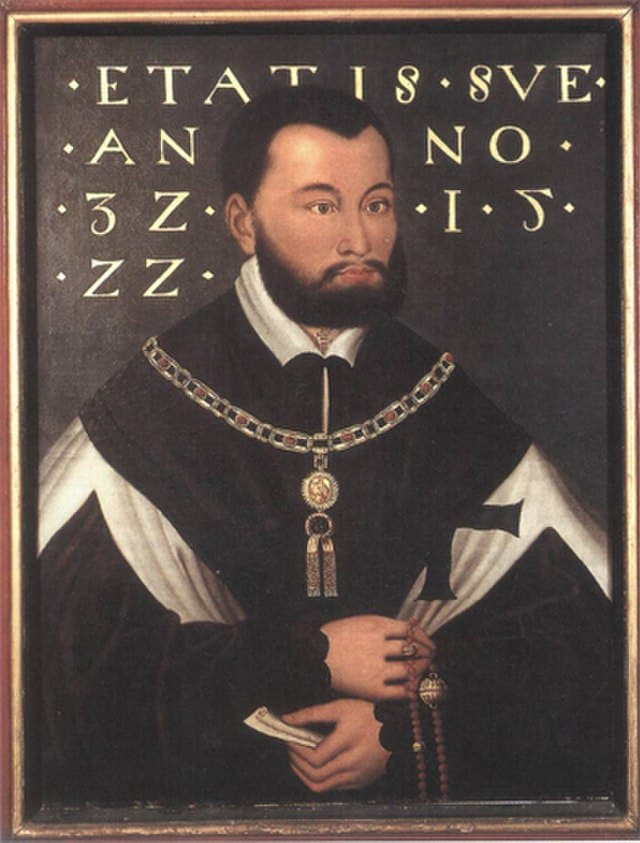
Albrecht von Hohenzollern was a significant historical figure who served as the Grand Master of the Teutonic Order and the first Duke of Prussia. Born in 1490 into the powerful Hohenzollern dynasty, Albrecht was a product of the medieval European knightly culture steeped in the tradition of crusading and chivalry. However, by the time he assumed leadership of the Teutonic Order in 1511, the Protestant Reformation was well underway, and the political pressure from Poland was intensifying. Faced with these challenges, Albrecht made a decision that would irreversibly transform the political and religious landscape of Prussia.
As a German knight and the Grand Master of the Teutonic Order, Albrecht initially sought to defend Prussia and maintain the Order’s independence. He held a commission in the imperial army of Charles V, leading the Order’s military forces against Polish advances. Albrecht personally led an offensive against Poland in 1519, securing military victories in battles such as Salneche and Koknese.
However, these conflicts drained the resources of the Teutonic state and failed to decisively repel the Polish-Lithuanian Commonwealth, which was determined to incorporate Prussia into its territories. As the pressure mounted, Albrecht began to explore the possibility of secularization as a means to preserve the Order’s holdings.
The most pivotal moment in Albrecht’s tenure came in 1525 when he decided to secularize the Teutonic Order’s territories in Prussia. Breaking with the Order’s religious foundations, Albrecht converted to the principles of the Protestant Reformation, effectively ending the Teutonic Knights’ rule over Prussia. He proclaimed himself the Duke of Prussia, establishing a hereditary duchy under the nominal overlordship of the Polish king. This move not only marked the end of the Teutonic Order’s presence in Prussia but also made it the first Protestant state in Europe, influencing religious reform movements in other regions.
Albrecht’s decision to secularize the Teutonic Order’s Prussian holdings was met with controversy and drew criticism from various quarters. While some contemporaries and later historians have condemned him for betraying the Order’s mission, others have recognized the pragmatism and political acumen that informed his actions. Regardless of the moral judgments, Albrecht’s transformation of Prussia set the stage for its emergence as a significant power in the region. His successors would eventually elevate Prussia to the status of a kingdom, profoundly impacting German history.
In addition to his political and military endeavors, Albrecht von Hohenzollern was a patron of learning and the arts. He founded the University of Königsberg in 1544, creating an environment that fostered intellectual growth and scholarship. Albrecht’s support for education and his promotion of Protestant theology contributed to the cultural and intellectual development of Prussia, setting it apart from its Catholic counterparts.
Albrecht von Hohenzollern’s life and career offer a fascinating study of a medieval knight navigating the turbulent waters of early modern European politics. His decision to secularize the Teutonic Order’s Prussian territories was a defining moment that would have lasting repercussions for the region. As the first Duke of Prussia, Albrecht laid the groundwork for the rise of Prussia as a formidable state and played a pivotal role in the transition from medieval knightly rule to early modern statecraft.

Florian Geyer: The Rebel Knight of the German Peasants’ War (c. 1490–1525)
Florian Geyer was a knight who is best remembered for his rebellion against the aristocracy. Born into a noble family in Franconia around 1490, he grew up during a period of significant social and economic upheaval in Germany. Like many knights of his era, Geyer was expected to serve the interests of the nobility. He received a traditional education for a knight, which would have included martial training and instruction in the feudal obligations and customs that governed society.
However, Geyer was also deeply influenced by the widespread discontent among the lower classes that he witnessed during his military campaigns across Europe. He came to empathize with the struggles of the common people, particularly the peasants, and developed a strong sense of social justice. This set him apart from many of his contemporaries and fueled his desire for social change.
In the early 16th century, Geyer became one of the leaders of the German Peasants’ War (1524–1525), a widespread revolt by peasants and other lower-class individuals against the feudal system. He led the Black Company, a mercenary and peasant force dedicated to the cause of social justice. Unlike many other peasant armies, Geyer’s Black Company was well-organized and disciplined, making it a formidable force on the battlefield. He was known for his bold tactics and personal bravery, and he quickly gained a reputation as a knight-errant fighting against the tyranny of his own class.
Under Geyer’s leadership, the Black Company was able to rally the peasants into a coherent military force capable of taking on the heavily armored knights and professional soldiers of the aristocracy. He also became a vocal advocate for the peasants’ Twelve Articles, a set of demands that included the right to a fair trial, a reduction in taxes and tithes, and the right to choose their own pastors. Geyer was also known for his support of religious reform and his interest in mysticism.
His commitment to the cause of social justice and the peasants’ grievances made Geyer a popular figure among the lower classes, but it also made him a target for the nobility. The knight’s activities were seen as a direct threat to the feudal order, and the aristocracy moved quickly to quash the rebellion. In the end, the superior resources and organization of the nobility proved to be too much for the peasant armies, and the Peasants’ War was ruthlessly suppressed.
Geyer’s Black Company was eventually defeated, and he himself was forced to go into hiding. In 1525, he was betrayed by his allies and ambushed by the troops of the Prince-Bishop of Würzburg. He was killed in the attack, and his body was reportedly mutilated as a warning to other potential rebels. The peasant uprising was crushed, and thousands of its supporters were executed or exiled.
In the 19th and 20th centuries, Geyer’s name was appropriated by various political movements in Germany as a symbol of resistance and rebellion. He became a hero to some revolutionaries and socialists, who saw him as a forerunner of their own struggles against oppression. However, others viewed him as a dangerous and misguided idealist who had needlessly brought destruction upon his own people.
In many ways, Florian Geyer was an anomaly in the history of knighthood. While most knights were content to serve the interests of the nobility, Geyer chose to side with the lower classes. His commitment to social justice and his willingness to take up arms against the aristocracy made him a radical figure for his time, and his legacy remains controversial to this day. Nevertheless, his story serves as an essential reminder that not all knights were pawns of the powerful, and that even in medieval society, some were willing to challenge the status quo.
Ulrich von Liechtenstein: The Knight of Courtly Love and Chivalry (c. 1200–1275)

Ulrich von Liechtenstein was a German knight and poet whose life embodied the ideals of chivalry, honor, and courtly love in medieval Germanic culture. Born around 1200 in Styria (modern-day Austria), he belonged to a noble family and was trained in the knightly arts from a young age. Unlike many knights who built their reputations on the battlefield, Ulrich became famous for participating in jousting tournaments and his poetic works, celebrating love and knighthood ideals. His writings provide an invaluable glimpse into the courtly traditions and values that shaped medieval European aristocracy.
One of his most renowned works, Frauendienst (Service of Ladies), is a semi-autobiographical account of his adventures as a knight devoted to serving an unattainable lady. In it, he describes traveling across Europe, engaging in tournaments, and performing feats of chivalry in her honor. Ulrich even claimed to have disguised himself as the goddess Venus, donning elaborate garments to win favor and admiration. While historians debate the accuracy of these accounts, the text reflects the exaggerated romantic ideals of the time and how knights sought prestige through elaborate displays of devotion.
In addition to being a poet and courtier, Ulrich von Liechtenstein was also a warrior and, like most knights of his time, took part in military campaigns. He served as a ministerialis, or knightly servant of a lord, for several different rulers within the Holy Roman Empire. While he was not known for any great battlefield triumphs, he was involved in some of the political and military conflicts in Styria during his lifetime, and he would have been expected to fight and defend his homeland as a member of the nobility.
However, his legacy as a knight was defined more by his writings than by his military exploits, as he became one of the most famous poets of his time and helped to popularize the idea that a knight’s duty extended beyond simply fighting in battles.
His poetry emphasized other aspects of knightly conduct such as good manners, loyalty, and service to women, and became a model for other knights of his day. Ulrich von Liechtenstein is also notable for his involvement in jousting tournaments, a popular form of combat among knights during this time. He traveled widely and participated in some of the most important tournaments of the medieval period, always following the strict chivalric code of conduct in his duels.
These events were more than just bloodsports, as they were an opportunity for knights to showcase their skills and reputations in a highly structured and regulated environment. In this way, Ulrich was able to prove himself as a warrior while also embodying the romantic ideals of knighthood that he so eloquently wrote about.
Ulrich von Liechtenstein’s fame and reputation were based on his chivalrous actions and romantic pursuits. He lived during a time when the ideals of courtly love and chivalric behavior were highly valued by the nobility, and his writings and poetry helped to popularize and define these concepts. While he may not have been the most successful warrior of his time, he was able to achieve lasting fame through his actions and writings, as his life and works became a model for other knights of his day. Ulrich von Liechtenstein remains an important figure in medieval history and literature, as his works provide a unique insight into the culture and values of medieval European aristocracy.

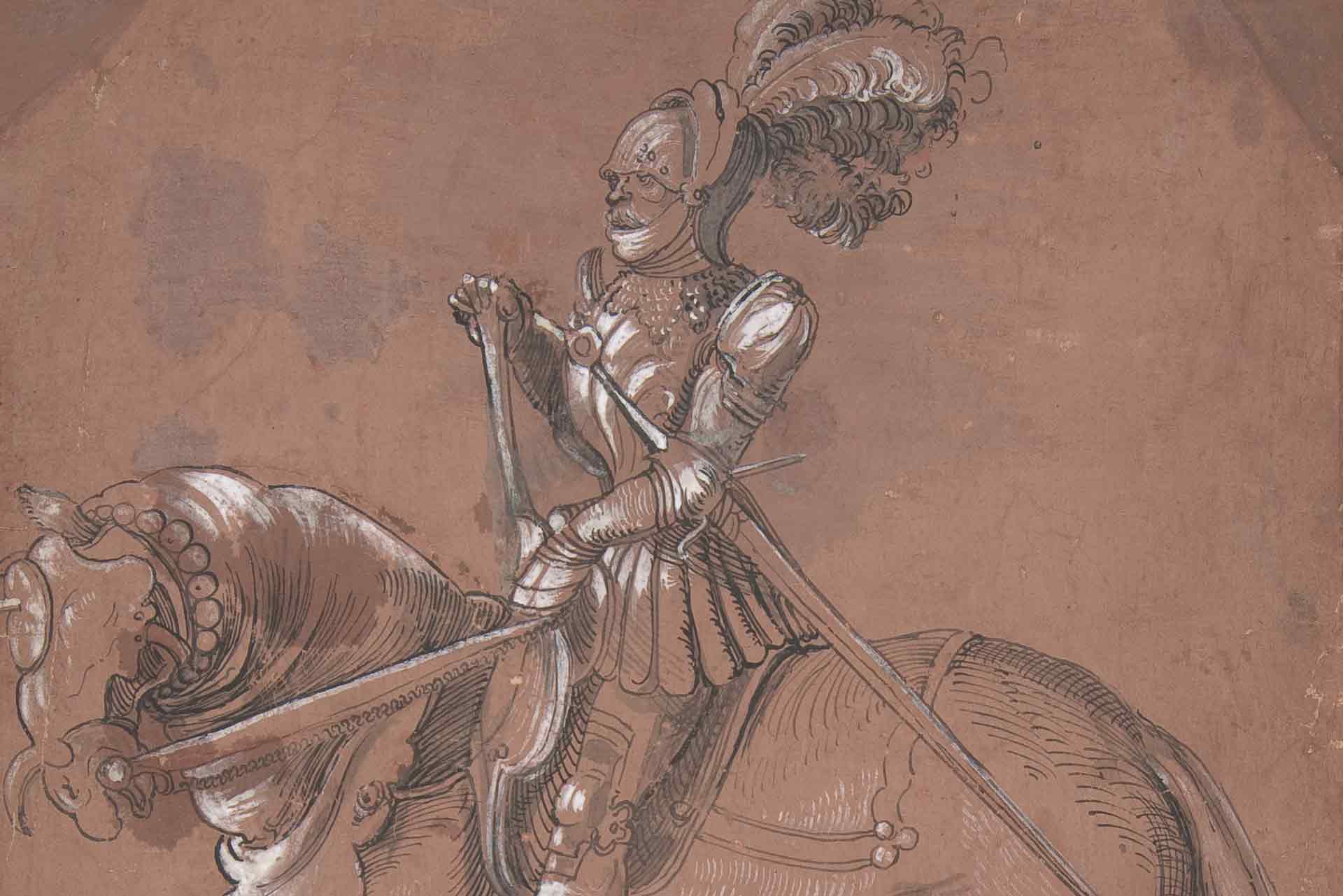
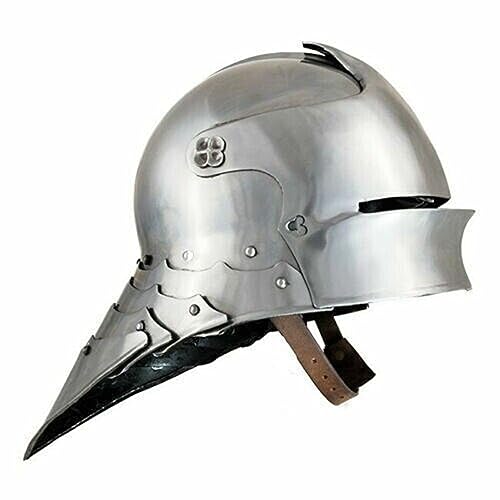

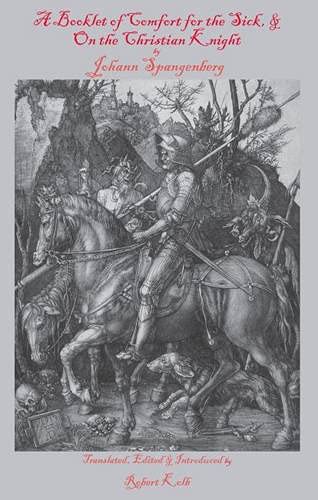
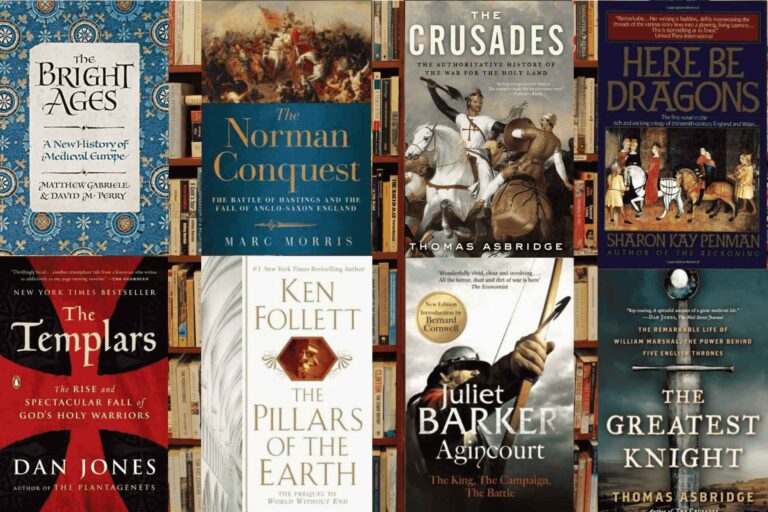
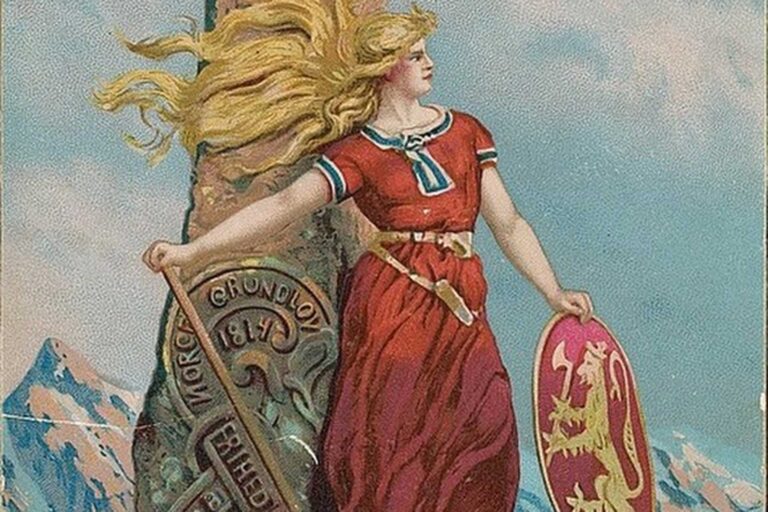
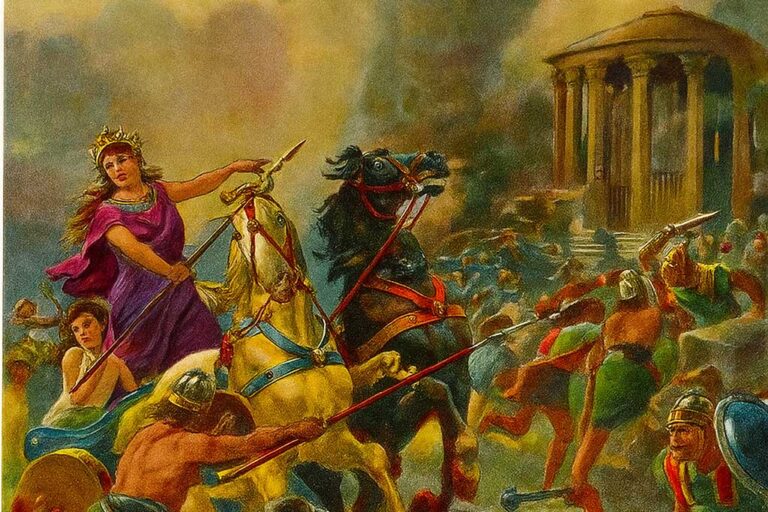
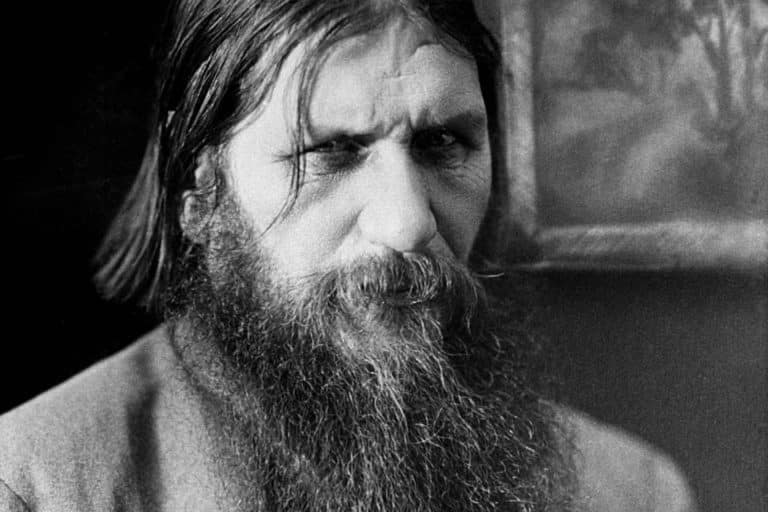

![[VIDEO] How Fur Farms, World War II, and a Bomb Created Germany’s Raccoon Invasion](https://historychronicler.com/wp-content/uploads/2025/07/Screenshot-2025-07-07-at-1.57.45 PM-768x512.jpg)